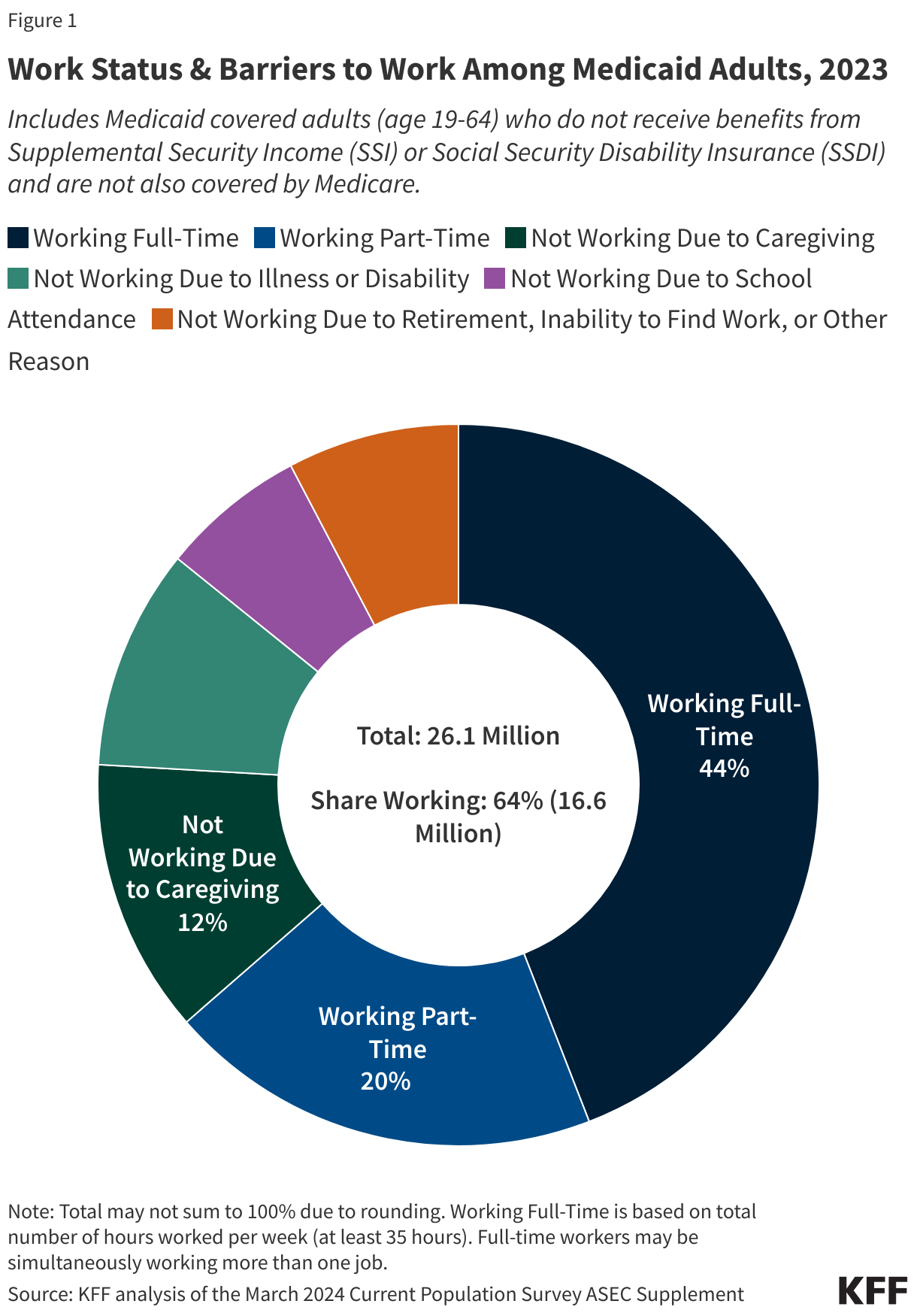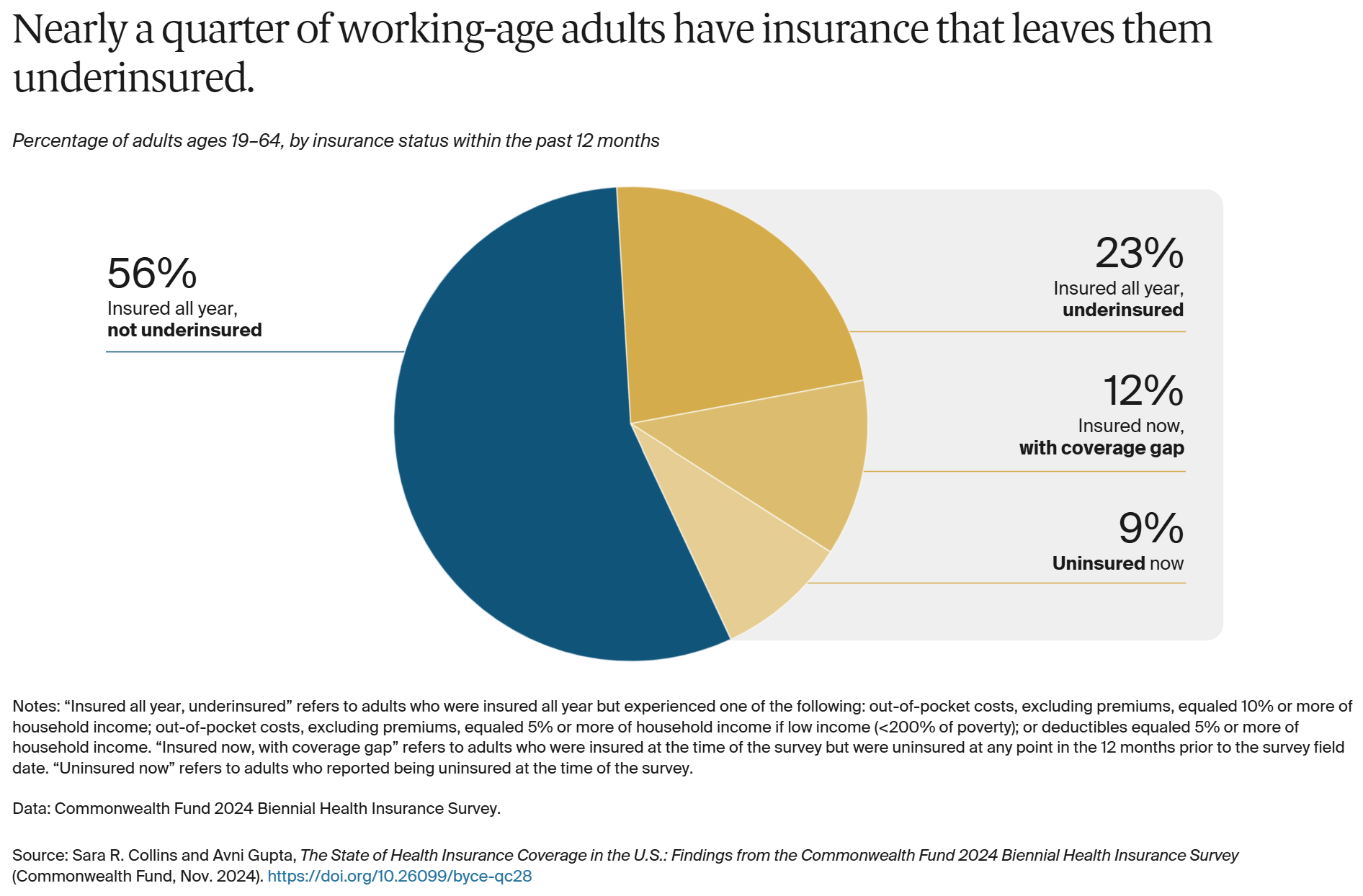Health Coverage at Risk: How the OBBBA Threatens Our Boundaries and Our Wellbeing
It's hard to know where to begin with the One Big Beautiful Bill Act (OBBBA). You've seen the news, and you've seen the pushback across political perspectives on various aspects of this bill. What I'm going to focus on in this edition is the changes to health insurance coverage, and I'm going to start with a short story.
A few months ago (although let's be real, it feels like years) when HHS announced it was laying off 10,000 employees, I talked to a conservative relative in Ohio about the layoffs and the negative effects on those employees and their families. His response was that there are plenty of trade jobs in Ohio and they could move there. I was indignant - people didn't go to school for years to get their doctorate or other advanced degree to work in a trade. Trade jobs are critical to the U.S. economy, but a healthy economy (and a healthy society) needs workers of all types. And let's not even get started on the idea of people having to uproot and disrupt their lives over changes that are still being litigated.
This exchange came back to me when I read this quote in Heather Cox Richardson's July 8 edition of Letters From an American:
Secretary of Agriculture Brooke Rollins rejected the idea that the government would find a way to protect undocumented agricultural workers. “There will be no amnesty,” she said. “The mass deportations continue, but in a strategic way. And we move the workforce towards automation and 100% American participation, which again with 34 million people, able-bodied adults on Medicaid, we should be able to do that fairly quickly.”
What's clear from both of these exchanges is that facts don't matter, but values do. It doesn't matter that 64% of Medicaid covered adults are working full or part-time, or that those who don't are unable to for reasons including illness, disability, school attendance, and caregiving responsibilities. What does matter is the perception that there are people who are able to work but choose not to, who are supposedly benefiting from someone's else's labor, and who are not actively contributing to their own health and welfare. The boundary isn't more facts, it's narrative change.
The reality of the OBBBA is that 16 million people stand to lose health insurance coverage. That is the entire population of 8 STATES:
New Mexico (2,130,256)
Kansas (2,970,606)
Mississippi (2,943,045)
Nebraska (2,005,465)
Idaho (2,001,619)
West Virginia (1,769,979)
Hawaii (1,446,146)
New Hampshire (1,409,032)
According to the Center for American Progress, additional impacts include:
More than 300 rural hospitals at immediate risk of closure
Medicaid work requirements that will decrease coverage among eligible adults while not yielding a significant increase in employment - along with excessive overhead costs
Longer wait times for home and community based services
Medicare cuts
When I set out to write this edition, I was going to talk about how I’ve been on the Marketplace twice in my life, both times allowing me to have critical coverage while I was working full time in positions without benefits. But the OBBBA is going to make it harder even for Marketplace coverage. And when people lose health insurance coverage, all types of wellbeing suffer: physical, mental, emotional, and financial.
Data Highlights – Coverage Gaps and Real Consequences
🚫Over 25 million people in the U.S. remain uninsured, including many low-wage workers and those in states that didn’t expand Medicaid.
→ KFF: Key Facts About the Uninsured Population, 2024
💔 Lack of insurance is linked to premature death from conditions such as untreated dental abscesses, delayed cancer diagnoses, unmanaged mental health conditions, and insulin rationing.
→ KFF: The Uninsured Population and Health Coverage, 2024
🧠 Medical debt is the leading cause of personal bankruptcy in the U.S., even for insured people.
→ AP: States confront medical debt that’s bankrupting millions, 2023
📉 States that expanded Medicaid saw lower mortality, reduced racial health disparities, and higher treatment rates for substance use and mental health.
→ Center on Budget and Policy Priorities, The Far-Reaching Benefits of the Affordable Care Act’s Medicaid Expansion, 2020
Equity & Inclusion – Who Gets Covered?
⚠️ The “coverage gap” affects over 1.4 million adults, mostly in non-expansion states, who make too much for Medicaid but not enough for subsidies on the Marketplace.
→ KFF Coverage Gap Data
💼 OPS, temp, gig, and part-time workers are often excluded from employer coverage, despite working full time in some cases. I was once a full-time OPS employee at the University of South Florida, and had no coverage for two years.
🧑🏽⚕️ Black, Latino, and Indigenous people are more likely to be uninsured, compounding health disparities. This is partly because they disproportionately live in non-expansion states.
→ Center on Budget and Policy Priorities, Health Coverage Rates Vary Widely Across — and Within — Racial and Ethnic Groups, 2024
🚫 Undocumented immigrants remain categorically excluded from most public programs, despite contributions to the economy and tax base.
→ National Immigration Law Center, Health Care
Boundary Highlight – Health Insurance as a Boundary
Health insurance gives us autonomy and agency over our wellbeing - individual and collective. It gives us the ability to say yes to a doctor’s visit, no to delaying care, and maybe to the possibility of a future where we all can thrive.
But for many, coverage is fragmented, confusing, or completely out of reach.
Setting boundaries around healthcare access might mean:
Calling your legislators to share stories about how you are impacted by the OBBBA's coverage changes
Taking full advantage of your health care plan's benefits, if you have a plan
Educating yourself on alternatives to our current insurance system in the U.S. so that you can better advocate for what's best for you and your community.
Law & Policy – What’s at Stake Now
📈 Medicaid Expansion is a sound policy decision. It has reduced racial and rural coverage gaps, decreased uncompensated care costs for hospitals, and saved lives.
🛠️ Even some people with health insurance may be considered underinsured - unable to access timely or affordable care despite their coverage.
🌎 Universal coverage remains politically polarizing, but every major analysis shows it would lower total healthcare costs, improve outcomes, and reduce health inequities.
→ The Economist: Special Report, Universal Health Care, 2018
🧓🏽 Medicare and Medicaid remain popular among majorities of Democrats, Republicans, and Independents. Public opinion can be leveraged to hold lawmakers accountable for the impact of the OBBBA's cuts.
Take Action – Protect Access and Push for More
✅ Individual
Share your story if you've been uninsured, underinsured, or harmed by the current system
Compare Marketplace plans carefully, and use patient advocacy groups to negotiate bills
Talk openly about how healthcare access shapes your life to reduces stigma
🏢 Organizational
Offer tiered plans or employer-funded stipends to help with out-of-pocket costs
Consider on-site or telehealth clinic access, especially for hourly or part-time staff
Provide transparent and accessible health plan walkthroughs during onboarding
🌍 Systemic
Protect Medicaid, Medicare, and ACA subsidies
Expand Medicaid in non-expansion states
Move toward universal coverage by supporting policies that guarantee healthcare as a human right
🩺 Closing Thought
We are in it for the long haul with these OBBBA changes, which will shape health for years to come. It's necessary to understand the policy options, the data and the stories behind them, and the values underlying this current shift. We continue to advocate because people's lives are on the line, and because we want to keep the long haul from getting any longer.




